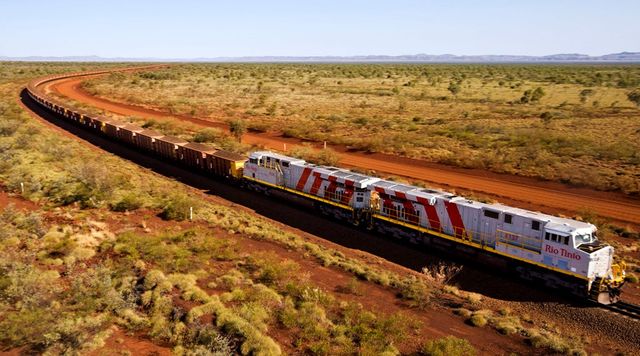
Rio Tinto has begun driverless train operations in the Pilbara. But what does this mean for mining jobs and the mining industry?
The automation train is, literally, moving full steam ahead. This month mining giant Rio Tinto marked the inaugural delivery by driverless train of iron ore from its Tom Price operations in WA’s Pilbara to the port of Cape Lambert, about 280 km away.
Described by the miner as the world’s first heavy-haul, long-distance autonomous rail operation (the journey was overseen by an operations team 1500 km away in Perth), it’s been billed as a game changer that will unlock “significant safety and productivity gains for the business”.
But just how much will this change the landscape for mining jobs in Australia? Is it only Train Drivers who will no longer be needed, or are there other positions along the supply chain that will become redundant? Or will this, instead, create opportunities for new types of mining jobs?
Mining People International Principal Consultant Professional Technical, Tony Turton, said with the launch of driverless trains there would undoubtedly be a loss of jobs for Train Drivers. However, he also said there was an expectation that most workers would retrain to take on work that was required as a consequence of automation.
“Similarly, with things like the driverless trucks on some of their sites, there are actually operators for that equipment based in Perth,” he said.
Automation as an ongoing concern
MPi’s own polling last month showed increasing concern among mine workers about industry automation and its impact on mining jobs, with those who don’t hold positions as supervisors or managers most worried that automation could cost them their livelihoods.
Rio Tinto has already been using driverless trucks across its operations for several years, noting in 2016 that they had proven to be 15% cheaper to run than manned vehicles.
FURTHER READING: Mining technology: drone pilots set to be a high demand job of the future
In a presentation to investors and analysts in Perth last month, the miner said it had 95 autonomous trucks and 11 autonomous drills already in operation. Its driverless trains, meanwhile, are set to be rolled out across its Pilbara network by the end of the year under the $US940 million AutoHaul project.
And Rio Tinto is by no means the only mining company in Australia pursuing automation, with BHP Billiton and Fortescue Metals Group among other big employers swapping people power for robots.
FMG, which operates 56 autonomous trucks at its Solomon iron ore mine site in the Pilbara, told the West Australian in February that together with the use of autonomous drills it was 30% more productive than a manned fleet. However, it also stressed there had been no redundancies as a result of its shift to automation, with workers upskilled, relocated to other operations or given new job opportunities.
New maintenance requirements
Turton said while it was unclear what job opportunities would become available with driverless trains, “there will be additional requirements associated with the electrical and mechanical maintenance of the equipment as a minimum”.
While the scope of future jobs is yet to be detailed, Rio Tinto Iron Ore Managing Director Rail, Port & Core Services, Ivan Vella, said in a media release that it was “working closely with drivers during this transition period as we prepare our employees for new ways of working as a result of automation."
RELATED: 6 technological advances set to change mining forever
So, with big mining companies pursuing automation at full pace, is this the New World Order in mining?
Turton said he believed the mining industry would continue to push the frontier with autonomous operations as it strives to maintain a competitive edge.
“This isn’t necessarily a bad thing, as new skills will be required for the myriad new jobs that will eventuate,” he said. “This will enable people to continue in their skills development and help to reduce risk of injury in the workplace.”
Not sure what the next step in your mining career should be? MPi has been a mining industry recruitment specialist for more than 23 years. Register with us here and let us help you find the right job.